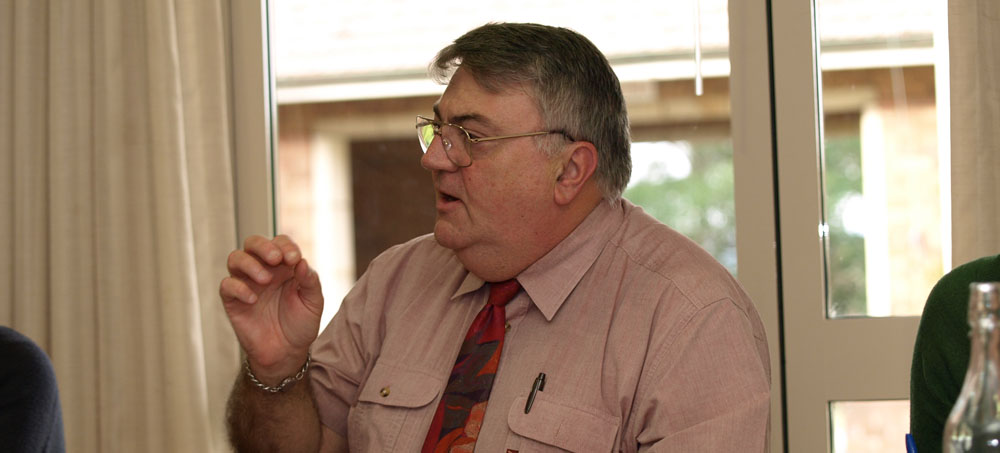Oct 2010
At the beginning of the 21st century, there are many understandings of the term spirituality. For Catholics, spirituality is about the way we orient our life towards wholeness and happiness, and the ways we make meaning of what happens in our life, and our relationships. Spirituality encompasses the values by which we live and how we seek connection and communion with God through Jesus Christ.
Understood in this way, spirituality provides the context in which marriage is lived out day by day, but often it is not acknowledged, not only when dealing with marriages under stress, but even for those which are blossoming.
Spirituality can enhance marriage and family life in a wide variety of ways. Let me suggest just a few:
- Marriage is a call to a graced union with each other in Christ; it is a vocation which draws strength from the mutual relationship of the couple, the support of the wider community, and the grace of God. It is a sacred vocation we need to celebrate.
- Spirituality continually reminds us to respect and honour the human dignity of our spouse and our children.
- Hope and trust in God’s providence is central to spirituality; from this flows a willingness to meet challenges we encounter. In it, we tap into grace and resilience.
- Marriage is a sacrament, and brings to the couple a special sacramental grace. Acknowledging and co-operating with this grace will assist them to flourish in their relationship and witness to the joy and goodness of marriage to an often disillusioned or skeptical world.
- Spirituality reminds us of our connectedness. It cautions against insularity and encourages us to bring together and integrate the inward and outward action of family.
- Care for the inner dynamics of the family will include conflict resolution; accountability and forgiveness (A good reflection question here could be, how can our family be transformed?) The couple and family will also be conscious of a call to people and communities beyond themselves, seeking ways for being in mission, to be good news to wider family; friends; local community; global community. (They will ask each other, how does our family make a difference and help to transform the world?)
- All of this can only be successfully undertaken through a rhythm of spiritual practices: being attentive to loving relationships; making time for prayer, ritual and reflection; and a commitment to social engagement and service.
- Spirituality calls us to identify what really matters. In our fast-moving consumerist society, a major focus here is likely to be what priority we give to relationships over possessions; who we are over what we have? In this context we could greatly proft from reflecting on Jesus’ injunction, “Where your treasure is, there will be your heart also.” (Luke 12:34)
There is a need for both the faith community and secular society to offer resources that will support marriages and offer hope in the midst of difficulties. One which I am happy to recommend is the Canadian Bishops Catholic Organisation for Life and Family (COLF). Among many fine resources, I particularly find useful their 2002 publication In Love for Life! A reflection paper on the conjugal, social and religious significance of marriage, which includes a Stages of Married Life model (1. Past history; 2. Romantic love; 3. Power struggle; 4. Stability; 5. Commitment; 6. Fruitfulness; 7. Growing old together). This model offers valuable insights into the different strengths, needs and possibilities of various stages of married life.
In the light of what has been stated above, let me suggest that a significant challenge and invitation for the Catholic community and Catholic agencies offering marriage-related services is to find ways to put spirituality and marriage in partnership. Some possible strategies might include:
- Marriage preparation programs including a spirituality component.
- Parish-based ‘mentoring’-type ministries in which people with some experience of married life will provide friendship, support and lived wisdom to those just starting out in marriage.
- When marriages are in trouble, the partners’ motivations need to be explored (and maybe challenged?) as well as the problems addressed. Important questions need to be faced, such as “What really matters here? What really matters for you?”
- When marriages fail, partners need to be helped to honestly ask, “What does this mean for me, for us?” While always upholding the dignity of marriage and seeking hope and resilience, we need to recognize that sometimes marriages will not work. In those cases, we need to help people to move without rancor and bitterness, into a new future. This suggests the need to explore and articulate also a spirituality for rising from the ashes, which will allow people to once again recognize and co-operate with the grace offered by our compassionate and forgiving God.
Anthony Steel
Institute for Advancing Community Engagement,
Australian Catholic University
October, 2010





